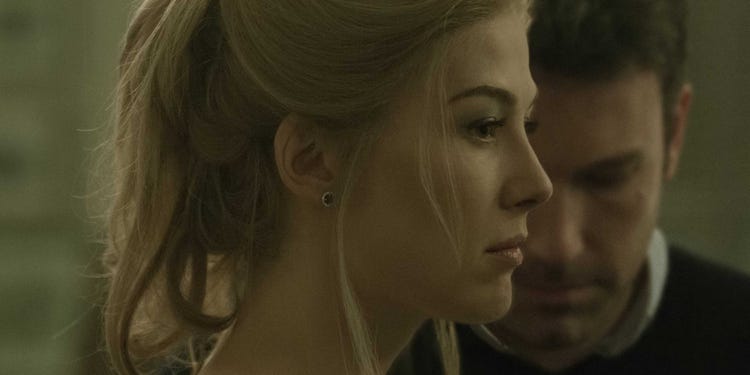Entertainment April 8, 2020
True Feminism means recognizing women as complex characters with both positive and negative attributes. Female Anti-heroes, where you at?


From “Gone Girl” to “Game of Thrones”: female anti-heroes have been called, “bad for feminism.” I am so sick of this narrative. How can there be gender equality if a woman is rarely portrayed fully and honestly as a human being in fiction? To do this, we need to acknowledge the female capacity for “evil” and anti-heroic qualities.

Traditionally, women have been oversimplified on film and on TV. There’s the doting wife or mother, the beautiful but conventionally “quirky” romantic lead, the popular mean girl with a secret heart of gold, or an all-time classic, the batshit crazy bitch. Why can’t we be seen as more complex than all that? In real life, none of us fall into just one of these categories outlined by female roles on TV and film. We can be mothers that hate our kids at times. Sometimes, we can be power-hungry and ruthless. We can be absolutely shitty spouses and we can get angry without being legally declared insane. Basically, we can be human.


Now, I’m not saying female roles aren’t expanding. In fact, I think women are getting more interesting roles in film and TV than ever before. The problem is, when women are portrayed in a negative light, it is often met with a considerable amount of backlash from fans.
Remember Amy Elliot Dunne from Gone Girl? She is the ultimate female anti-hero and I think she is a phenomenal character. She is smart, driven, meticulous and devious, yet the author of Gone Girl Gillian Flynn is called a misogynist. An article by TIME Magazine explains that Flynn’s character is actually extremely feminist:
“We should have all sorts of women in our novels — just as we have all sorts of men. Very few writers are creating complex, evil female characters with interesting motivations. Gillian Flynn is. It seems sexist to assert that female characters ought to be, at their core, loving and good.”
I think this is an excellent summary of the issue. Why should women all be portrayed as “good?” And if a woman is wronged, why shouldn’t she exact her revenge, as men can do, without being written off as, “crazy.”
I’m not saying we all go, “gone girl” on our significant other. But, I’m sure we can all empathize with Amy on some level, or at least appreciate her intelligence.
Perhaps most famously, HBO’s, “Game of Thrones” has often been in the spotlight for its portrayal of female characters. Personally, I think “Game of Thrones” is extremely feminist for portraying humans fully, flawed and power-driven, no matter their gender.
Focusing specifically on one powerful female character: Daenerys Targaryen, we see how love, hate, power and greed impact this woman, just as they would do with any male protagonist.
Upon watching the GOT finale (SPOILER ALERT), my wonderfully well-meaning boyfriend said, “Damn, this show is kinda bad for women, Daenerys just went crazy.”
While he was trying to sympathize with me, I had to explain to him how Daenerys’s ruthlessness and ultimate demise could have happened to anyone; male or female. This is not a feminist issue, but rather an accurate portrayal of how power can drive people to take drastic measures. I mean come on, how many men in, “Game of Thrones” have behaved in devious, crazy ways and exhibited poor leadership? Hint: most of them have.


Ah, “The Devil Wears Prada,” what a classic. I’m going to start by saying, I love this movie. However, I think it has some serious issues about how women are portrayed. I have a problem with almost every character in this film – except Miranda Priestly. She is an underrated feminist legend.
While Miranda is an “unlikeable” character, she is tremendously powerful, dedicated and poised. She is arguably one of the best portrayals of business professionals that I have seen in a film. Where “The Devil Wears Prada” misses the mark is that it prioritizes women being liked rather than successful.
We see this when Andy gives up her career at Runway and goes back to her ex-boyfriend who was never happy for her success. Sure, Andy is sweet and happily in love at the end of the film, but, at the end of the day, Miranda is the one who has the penthouse on 5th Avenue and commands an entire industry. And she does so without needing to be liked by anyone. Based on that, I think we need to reevaluate how much emphasis we place on how “likable” a woman needs to be.


I believe that female portrayals in the media are seriously improving. Let’s let this happen, don’t hate female anti-heroes, embrace them! The Medium puts it eloquently:
“It’s vital that we stop downgrading stories of women behaving badly, not to feed our appetite for the lurid, but because, as counterintuitive as it may seem, it gives us a better picture of the full humanity of women. The assumptions that make us hesitant to reckon with female villainy are the same assumptions that diminish women in other ways. The root belief that women are simply not as capable as men—of the highest virtue or the basest depravity—doesn’t do women any favors. Nor does the idea that women are inherently nurturing and therefore incapable of truly evil deeds.”
I love this quote and am enjoying seeing women playing more complex characters. Frankly, I relate to these “villains” a hell of a lot more than the cute, plucky heroine.